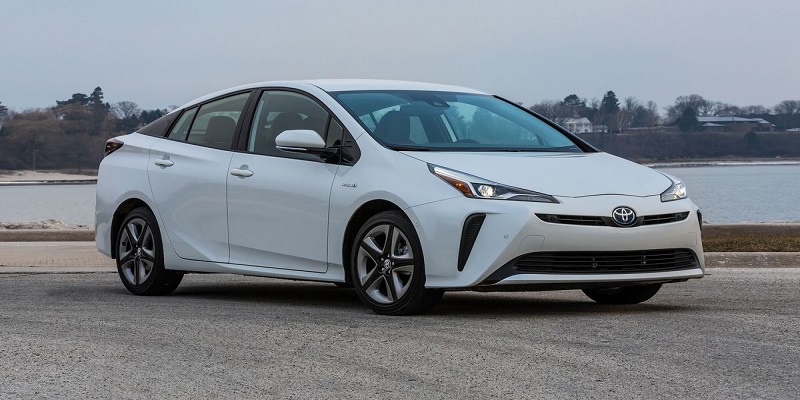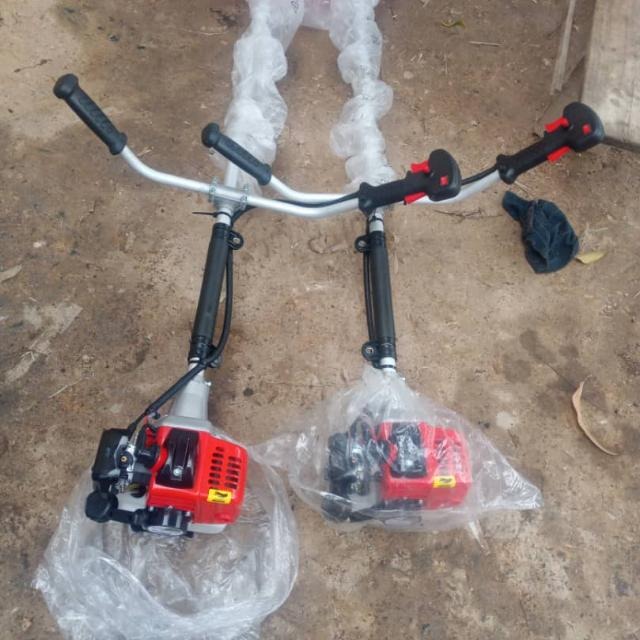2019 Toyota Prius
Available all-wheel drive, extraordinarily efficient, cedes no storage space to its battery pack.
Overview
The original Prius helped make hybrid vehicles mainstream back in the early 2000s, and it continues to be one of the most recognized hybrid nameplates. Its eccentric exterior styling and—ahem—untraditional interior design are unmistakable albeit polarizing. Still, the Toyota has always been about making the world a greener place by maximizing fuel economy and minimizing emissions. The compact hatchback is losing ground to newer hybrid alternatives such as the Hyundai Ioniq and the Kia Niro, but the Toyota brand maintains an unrivaled reputation for reliability. While the Prius is the polar opposite of driving enjoyment and high performance (or any type of performance, for that matter), its comfortable interior and trademark powertrain deliver what many consumers want.
What’s New for 2019?

For the first time, the 2019 Toyota Prius is available with all-wheel drive. Its outward appearance is also slightly revised in an attempt to attract more buyers. The updates include new front and rear bumpers, more paint colors and wheel designs, revised LED head- and taillights, and a fresh rear hatch. Inside, the cabin layout is unchanged but there are new trim options. The Prius lineup also receives a new naming structure that drops the numerical names of old. Instead, the models now have titles that are similar to other Toyota products.
Pricing and Which One to Buy
The price of the 2019 Toyota Prius starts at $24,725 and goes up to $33,155 depending on the trim and options.
Despite the newly available all-wheel-drive system, we’d stick with the standard front-drive Prius. Still, those who live where there are more winter months than summer months may appreciate the improved all-weather capability. We prefer the eco-friendliest Prius, which is the entry-level L Eco. It lacks the fanciest options and creature comforts found on more expensive versions, but it has higher fuel-economy estimates from the EPA and solid standard features. These include two USB ports for the back seat, push-button start, passive entry on the driver’s door, and numerous driver assists such as adaptive cruise control, automated emergency braking, and automatic high-beam headlights.
Engine, Transmission, and Performance
Likes: Clever and smooth hybrid powertrain, fully delivers on its promise of fuel efficiency, available all-wheel drive.
Dislikes: Underwhelming acceleration, ho-hum driving experience.
The Prius’s hybrid powertrain is not capable of delivering thrilling or even amusing acceleration. Its lethargy can’t be given a free pass, as other competitors prove that acceptable performance need not be sacrificed in the pursuit of world-beating fuel economy. The all-wheel-drive versions feature an electric motor that functions separately from the hybrid system and powers the rear wheels.
The 2019 Prius offers little in the way of driving enjoyment and refinement. Still, the steering effort is pleasingly weighted, and responses to your inputs are accurate—making the handling feel almost lively. Feedback from the road is non-existent, though, and feels numb on-center. Braking is a common gremlin for hybrid vehicles, which use a mix of regenerative and friction braking. Inconsistent or numb feedback from the pedal, as we experienced in the Prius, is often the trade-off and, combined with the low-rolling-resistance tires that most hybrids wear, can make for longer braking distances in our testing than we would expect from other similar-size non-hybrid vehicles.
Fuel Economy and Real-World MPG
The EPA estimates the thriftiest Prius Eco will earn up to 58 mpg in the city and 53 mpg on the highway. The other front-drive versions are EPA rated at 54 mpg city and 50 mpg on highway. Those who drive mostly highway miles and like to travel with the flow of fast-moving traffic might be disappointed to learn that the Prius delivered 46 mpg on our 200-mile highway fuel-economy test (which we conduct at a steady 75 mph), undershooting its EPA rating by 4 mpg. While we haven’t tested an all-wheel-drive model, the EPA estimates it will earn 52 mpg city and 48 highway.
Interior, Infotainment, and Cargo
Likes: Comfortable and sturdy cabin, wide-open cargo space.
Dislikes: Cost-cutting interior materials, every similar rival held more carry-on luggage.
Consider that a larger-than-average chunk of the Prius’s cost is directed to make possible its advanced powertrain, and the amount of plastic in the interior starts to make sense even as it left us wanting for better trimmings. It could be appointed in sumptuous leather and we’d still take issue with the center-mounted information gauges, which require the driver to take their eyes off the road too frequently. Passengers have plenty of room to spread out in the Prius—there’s space for four six-footers thanks to upright seating—but several rivals offer even more legroom for back-seat passengers.
The standard infotainment system in the Prius is intuitive to use and offers an optional Qi wireless-charging pad. The optional 11.6-inch tablet-style touchscreen graces the dash of the upper trim levels but Apple CarPlay and Android Auto are still not available.
The hatchback body style of the Prius means there’s plenty of room for cargo behind the back seat, although it’s not the most spacious vehicle in this competitive set. Its dash-mounted shifter frees up room for storage cubbies in the front seat; rear cubby storage is limited to two unusually small door pockets and the small cupholders found in the center-seat pull-down armrest.
Safety and Driver-Assistance Features
Overall Safety Rating (NHTSA)
The Prius earned a five-star rating from the National Highway Traffic Safety Administration and a 2018 Top Safety Pick from the Insurance Institute for Highway Safety. It also comes standard with collision-avoidance technologies that are limited to option packages and upper trim levels in many competitive vehicles. Key safety features include:
- Standard forward-collision warning and automated emergency braking
- Standard lane-departure warning and lane-keeping assist
- Available self-parking feature
Warranty and Maintenance Coverage
Toyota’s warranty coverage matches up to its competitors; its hybrid-component warranty is an industry standard.
- Limited warranty covers 3 years or 36,000 miles
- Powertrain warranty covers 5 years or 60,000 miles
- Hybrid components are covered for 8 years or 100,000 miles
- Complimentary maintenance is covered for 2 years or 25,000 miles



